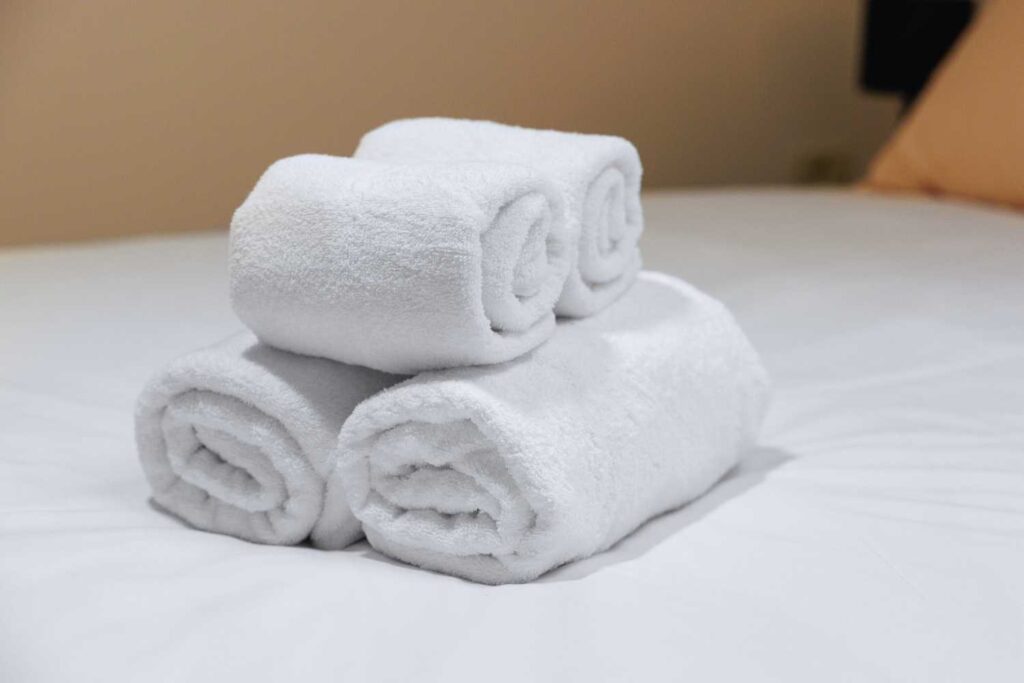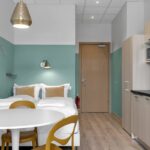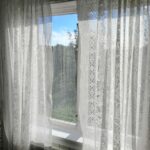Recent Posts
Ready to stay with Rentaborg?
From Arrival to Settle‑In: A Guide for Expats Living in Sweden
- August 6, 2025
- Rentaborg Team
- Blog
Moving to Sweden? Here’s What You Need to Know
Sweden is often ranked as one of the easiest countries for international professionals to call home – but only if you understand the bureaucracy behind that Scandinavian calm. Whether you are a consultant on assignment in Gothenburg or moving your family to Stockholm, your transition will be smoother when you know how to register, get the right documents and find a place that feels like home.
Registering with the Tax Agency and Getting a Personnummer
If you plan to stay in Sweden for more than a year, you need to register as a resident at the nearest state service centre. Doing so gives you access to Swedish social and health‑care benefits, and you will receive a unique ten‑digit personal identity number (personnummer). This number is the key to everyday life – it is required for everything from acquiring an identity card and home insurance to visiting a doctor.
You must apply in person to be listed in the population register, and the documents you need depend on your citizenship and whether you are moving with family. For stays shorter than a year, you may be issued a coordination number instead of a personnummer. For a practical checklist on registering and obtaining your personnummer, see our relocation guide, Relocating to Sweden – Smooth Corporate Housing. Once you have your personal identity number, you can open a bank account, sign up for utilities and access Swedish health care. Don’t delay this step — many tasks in Sweden hinge on having that number.
For a practical checklist on registering and obtaining your personnummer, see Rentaborg’s relocation guide. Once you have your personal identity number, you can open a bank account, sign up for utilities and access Swedish health care. Don’t delay this step – many tasks in Sweden hinge on having that number.


Setting Up BankID, Mobile Payments and Healthcare
Opening a bank account. Swedish banks require you to prove that you have a reason to open an account, such as employment or enrolment in an education programme, and they will ask for identification and proof of address. Although it is not a legal requirement to have a personal number, most banks treat it as an internal rule. You will need to visit a branch in person and bring your passport, proof of residence or employment and documentation of your Swedish address. To estimate the cost of corporate housing while you set up your finances, check out our corporate housing pricing guide.
BankID and Swish. BankID is Sweden’s digital ID system, used by 97.4 percent of adults. It allows you to sign documents, log into government services and make secure payments via your phone. Swish is the country’s most popular mobile payment app; it lets you instantly send or receive money and is used by 8 million Swedes. Both services require a personal identity number and are issued by your bank. Once you have your personnummer, open a bank account and download these apps to simplify everything from splitting the bill at fika to paying for utilities.
Healthcare access. Public healthcare in Sweden is funded by taxes and is available to residents. However, if you don’t have a personal number it can be difficult to make an appointment. With a personal number you pay the same fee as Swedish citizens for visits to health centres. Fees vary but are generally modest; for example, a visit to a healthcare centre (vårdcentralen) costs around SEK 200. When you register your address you will be linked to a local health centre; if you’re unhappy with it you can switch. For non‑emergency consultation call 1177, Sweden’s health advice line, which provides information in multiple languages. In emergencies dial 112.
Rentaborg’s relocation guide reminds newcomers to register with their local healthcare centre once they have their personal number. The company also suggests downloading the local transit and healthcare apps, which make navigating daily life far easier.
Finding Expat‑Friendly Housing Options
Sweden’s housing market is competitive. In larger cities it can take years to secure a first‑hand rental contract, so many newcomers start with second‑hand leases or corporate housing. Corporate housing providers like Rentaborg lease apartments and sublet them to companies, allowing workers to skip waiting lists and move straight into furnished homes.
Corporate housing is ideal for short‑ and mid‑term stays because it is fully furnished, includes utilities and high‑speed Wi‑Fi, and offers flexible lease terms. These apartments have separate bedrooms, living areas and full kitchens – significantly more space than a hotel room. By choosing a professional provider you avoid buying furniture, setting up utilities or dealing with landlords. Rentaborg handles everything from sourcing properties and furnishing them to guest screening and maintenance, so your team can focus on work rather than logistics.
If you prefer to rent privately, be prepared for paperwork and long queues. You may also need to provide guarantors or pay several months’ rent in advance. For examples of our housing, explore our pages for long‑term serviced apartments in Gothenburg and staff accommodation in Stockholm. Rentaborg’s corporate housing options cover major cities like Stockholm, Gothenburg and Malmö, as well as smaller industrial hubs. Each listing includes detailed photos, contract terms and clear pricing, so you know exactly what you are getting.
Integrating into Swedish Life (Language and Culture)
Most Swedes speak excellent English, but learning Swedish will open doors at work and help you build relationships. Municipalities offer free or low‑cost courses called Svenska för invandrare (SFI), which you can join once you have a personal identity number. In Gothenburg, for instance, you enrol by visiting the adult education centre and presenting your passport or ID. Outside major cities your local municipality will have information about SFI.
Beyond formal courses there are language cafés (språkcaféer), language‑buddy programmes and community events where internationals and locals meet to practise Swedish. The Move to Gothenburg guide notes that mastering Swedish can enhance your career prospects and enrich your life, and some professions require specific proficiency levels. Think of language learning as an investment rather than an obligation; the more Swedish you know, the easier it is to navigate public services and feel at home.
Culture goes beyond language. Swedes value punctuality, respect personal space and appreciate work‑life balance. The concept of lagom (not too little, not too much) applies to many aspects of life, from meeting planning to socialising. Embrace fika breaks — mid‑morning coffee with cinnamon buns — as a way to connect with colleagues. Explore Swedish traditions like Midsummer celebrations or Lucia processions and join local clubs based on your interests. To see how comfortable living can support your integration, read our article on fully furnished corporate housing. Expats often find that the more they engage with local customs, the faster they feel settled.
Final Tips and Call to Action
Moving to a new country is always a challenge, but with the right preparation Sweden rewards you with stability, high living standards and plenty of outdoor adventures. Here are the key takeaways:
Register early: Without a personal number many administrative tasks become impossible. Apply for your personnummer as soon as you arrive and bring the required documents.
Open a bank account and get BankID: You will need identification, proof of residence and often a personal number. BankID and Swish make digital payments and official transactions effortless.
Secure housing: Avoid Sweden’s long queue for first‑hand rentals by using corporate housing. Rentaborg offers fully furnished homes with utilities and Wi‑Fi included.
Learn Swedish: Free SFI courses and community programmes make it easier to master the language. Fluency is often required for certain jobs.
Embrace the culture: Engage in Swedish traditions and social customs to build meaningful connections.
Ready to make the move? Contact Rentaborg or visit Rentaborg.com to discuss corporate housing options that suit your project team or family. Our fully equipped homes across Sweden help you focus on what matters most — your work and your new life here.
You need to register as a resident with the Swedish Tax Agency if you are staying more than a year. Visit a state service centre with your passport and supporting documents (such as your employment contract). Once approved, you will receive your personal identity number. Shorter stays may be issued a coordination number instead. See our relocation guide for step‑by‑step instructions.
Most banks ask for a valid passport, proof of Swedish address and evidence that you have a reason to open an account (such as an employment contract or enrolment letter). Many banks prefer that you also have a personal number, though it is not strictly required by law. You will need to visit a branch in person to complete the process.
Healthcare is publicly funded and available to residents, but it is not completely free. You pay a small fee when you visit a doctor, nurse or health centre. Without a personal number it is difficult to book an appointment. Once you are registered and have your personnummer, you pay the same rates as Swedish citizens and can register with a local health centre.
Corporate housing provides fully furnished apartments with utilities and Wi‑Fi included, flexible lease terms and more living space than a hotel room. You avoid long waiting lists, avoid purchasing furniture and don't have to manage utilities or landlords. Rentaborg offers homes near major business hubs, making your stay comfortable and convenient.
Start with Svenska för invandrare (SFI), the free government‑sponsored Swedish course. Your municipality can tell you how to enrol once you have a personal number. Complement classes with language cafés, language‑buddy programmes and community events. Embrace Swedish customs like fika and participate in local traditions to build connections and feel at home.




